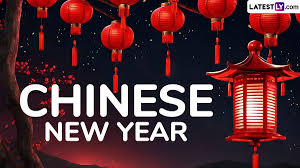2025 Lunar New Year customs guide: traditions and taboos from Lunar December 23 to Lantern Festival

Ta Kung Zhongyuan
Shenzhou: As the Year of the Snake approaches, saying goodbye to the Year of the Dragon, preparations for Lunar New Year are underway. From visiting flower markets and spring cleaning to enjoying family reunion dinners, these traditions are part of every family’s to-do list. However, Lunar New Year customs also carry many traditional taboos that are essential to observe for a prosperous year ahead.
Lunar New Year traditions are a significant part of Chinese culture, reflecting rich symbolism and good wishes. Beyond well-known practices like spring cleaning and family feasts, there are lesser-known customs such as “sending away poverty” on the fifth day of the New Year and “avoiding conflicts” on the seventh day. Let’s take a look at the preparations, festive foods, and customs to welcome the Year of the Snake with fortune and happiness.
The Little New Year marks the beginning of preparations for Lunar New Year. In ancient China, this day was dedicated to worshiping the Stove God, who was believed to oversee household affairs. This tradition seeks blessings for a safe and prosperous home.
Lunar December 24: Frying Festive Snacks: On this day, families prepare fried treats like sesame balls, crispy dumplings, and egg twists, each symbolizing blessings such as family prosperity and success.
Lunar December 25: Steaming Festive Cakes: Steamed radish cakes and sticky rice cakes are prepared, representing the wish for “rising higher” in life and career.
Lunar December 28: Thorough Cleaning: Known as “cleaning out the old to welcome the new,” this day is dedicated to deep-cleaning homes to sweep away misfortune and bad luck. Traditional practices may include bathing with pomelo leaf-infused water for good fortune.
Key Traditions on New Year’s Eve and New Year’s Day: With no Lunar December 30 this year, New Year’s Eve traditions take place on December 29. Homes are decorated with red spring couplets bearing auspicious phrases, and families gather for a reunion feast featuring symbolic dishes to ensure a prosperous year.
Elders give red envelopes to children, who place them under their pillows to ward off evil spirits.
Do’s and Don’ts for New Year’s Day
• Do wear red: Red clothing symbolizes good luck and a fresh start.
• Avoid bad language: Say only positive and auspicious words to attract blessings.
• Don’t clean or cut hair: Sweeping or washing away dirt may drive away wealth, and cutting hair could affect fortune as “hair” sounds like “wealth” in Chinese.
• No afternoon naps: Sleeping in the daytime is believed to lead to laziness throughout the year.Special Days During Lunar New Year
Day 2: Visiting the Bride’s Family
Married daughters traditionally visit their parents with gifts in even numbers, symbolizing “good things come in pairs.”
Day 3: Avoid Visits
Known as “Red Mouth Day,” this is a day to avoid social visits to prevent arguments and misfortunes.
Day 5: Welcome the God of Wealth
The fifth day is dedicated to welcoming the God of Wealth. Businesses often reopen on this day to symbolize a prosperous year ahead. It’s also the day to “send away poverty” by discarding accumulated waste from previous days.
Day 7: Everyone’s Birthday
The seventh day is considered the “common birthday” of all people. It’s a time for harmony and avoiding disputes.
Day 15: Lantern Festival
The celebrations conclude with the Lantern Festival, marked by eating sweet rice dumplings (汤圆) to symbolize family unity and completeness. Festivities include admiring lanterns and solving riddles.
Customs to Avoid During Lunar New Year
• Avoid buying shoes or books, as “shoes” sound like “sighing” and “books” sound like “loss.”
• Refrain from wearing black or white, colors associated with mourning.
• If something breaks, wrap the pieces in red paper and say peace every year to counteract bad luck.




